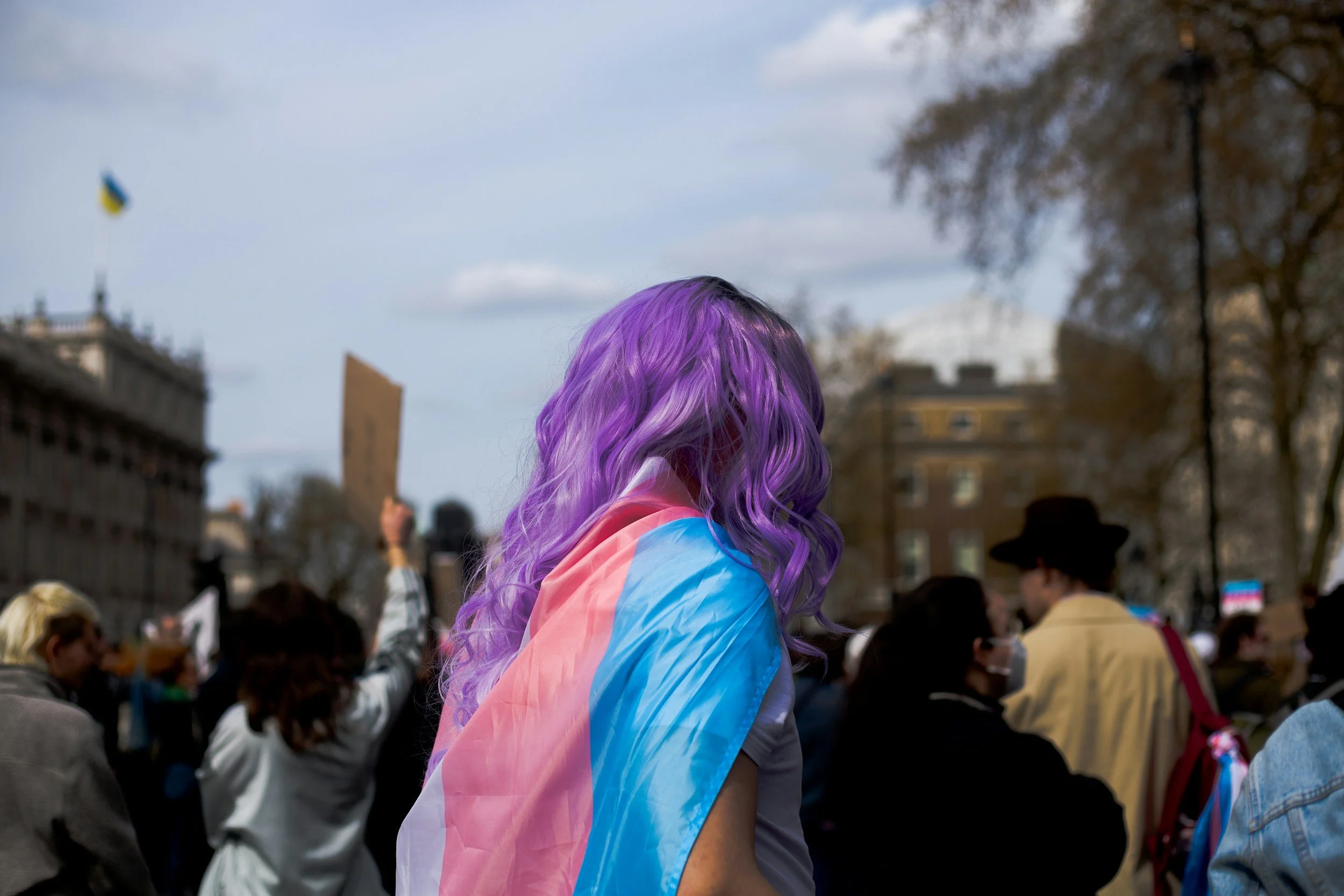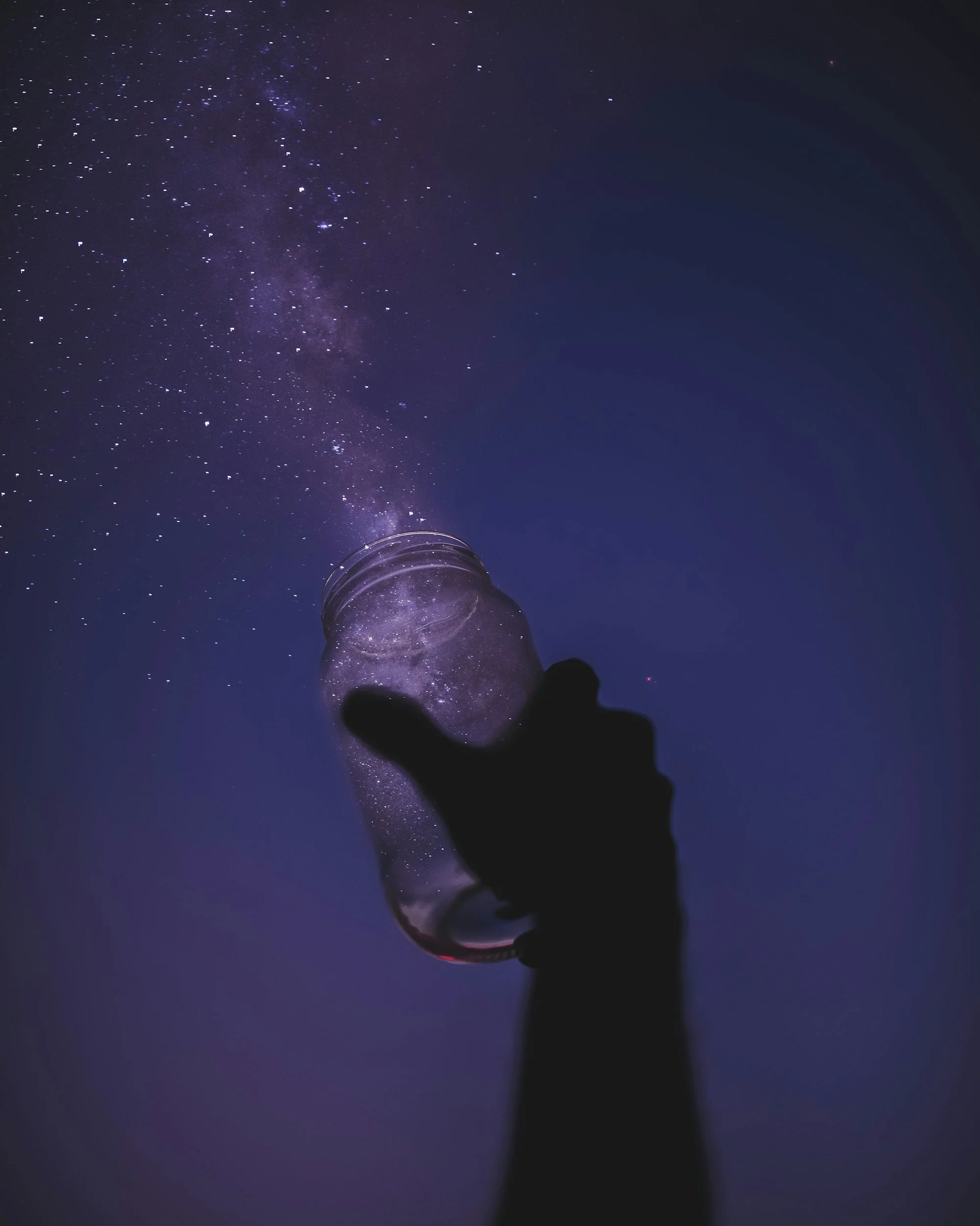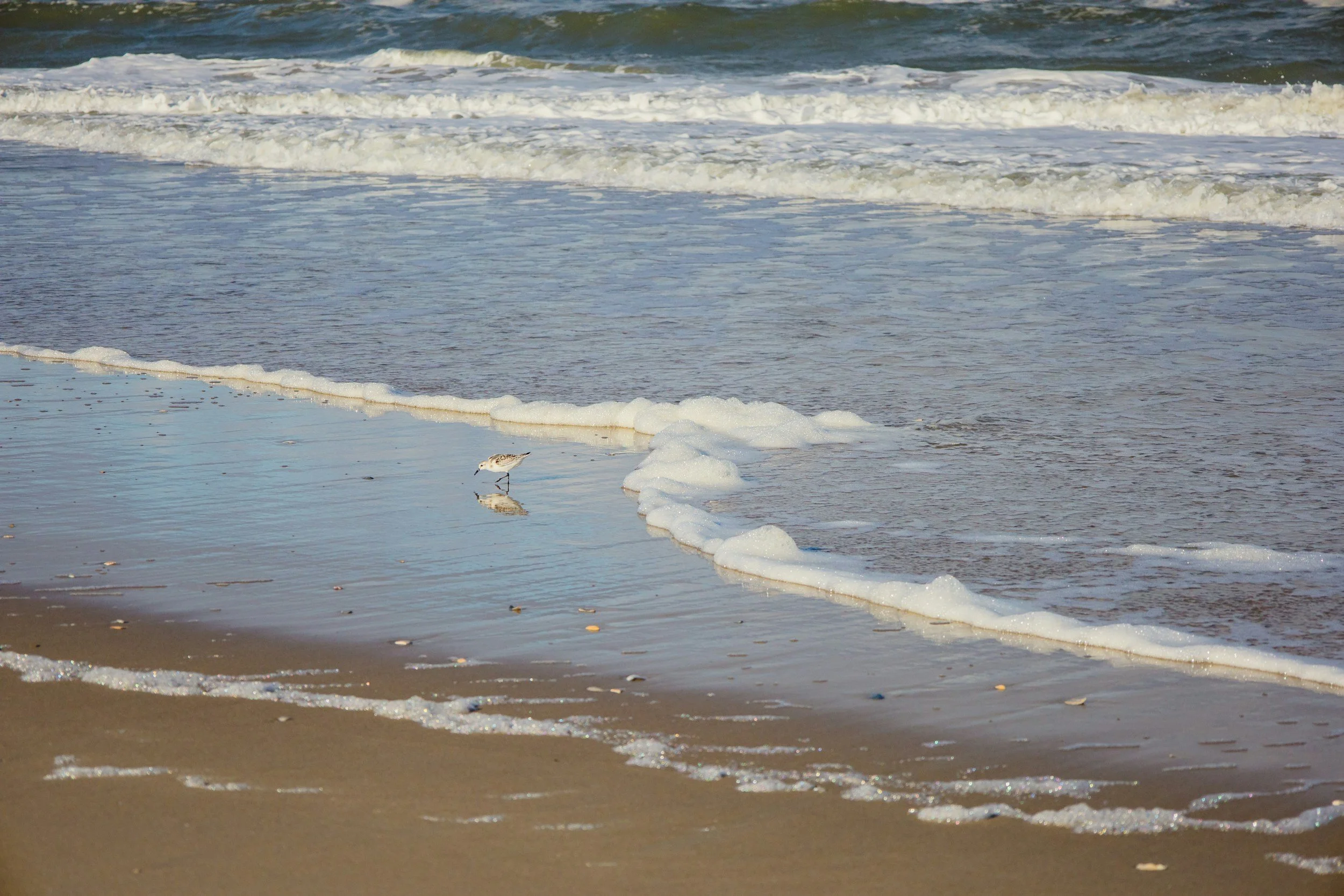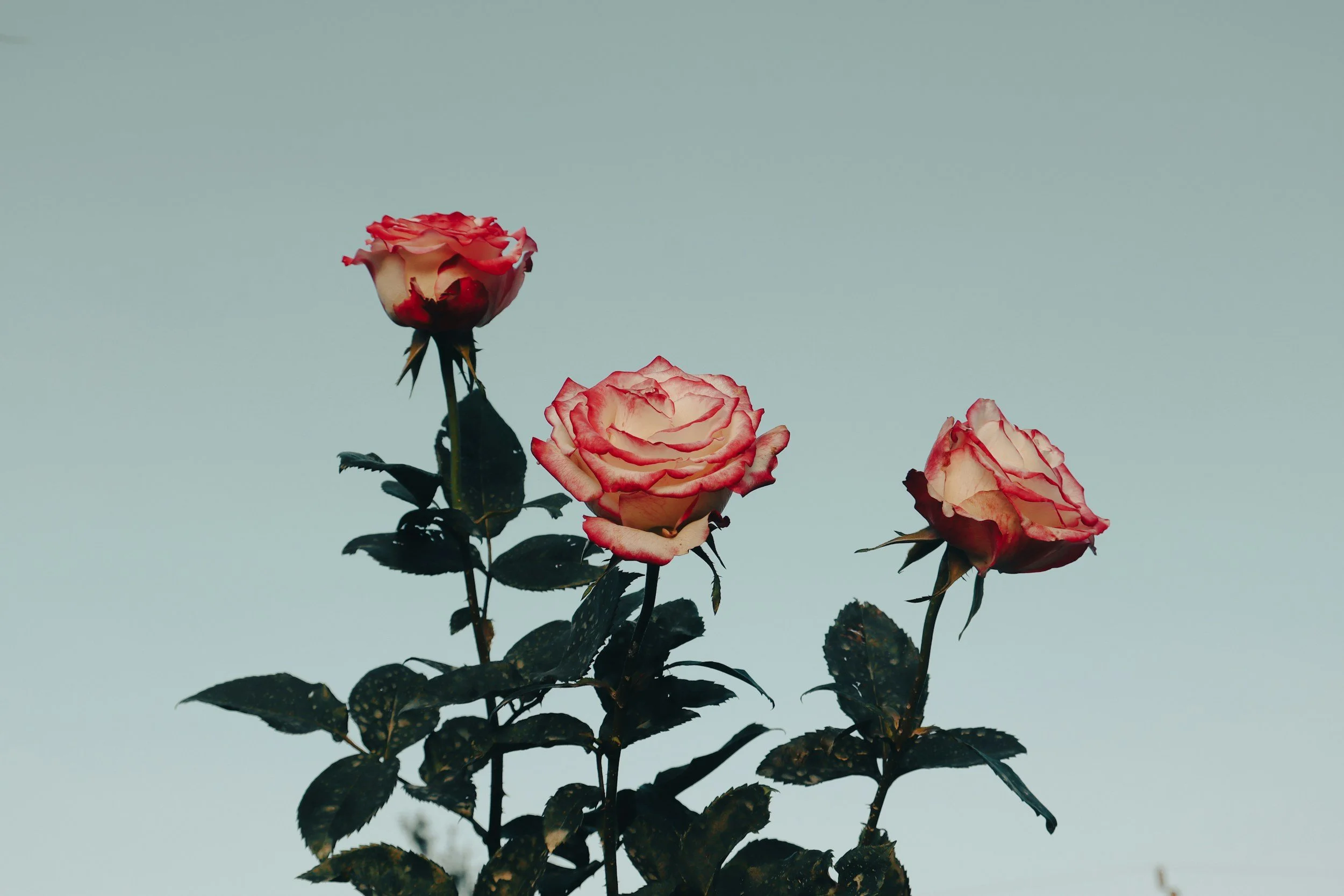Something Marginally Less Preposterous
Is it possible to feel the loss of something if you never had it to begin with? I don’t mean desire, because to desire something doesn’t necessarily mean a palpable sense of missing it. I mean, rather, to feel a defined and tangible absence, like that of a phantom limb, but for one never possessed in the first place.
Imagine, for example, that I were to tell you I felt the anguish of missing my wings. Big ones that should grow out of my shoulder blades, each as long as I am tall, thick with silverwhite feathers the length of my forearm. To make it marginally less preposterous, you might imagine that we belonged to a species a bit like the Gelflings from The Dark Crystal, meaning that some among us possessed wings, and others did not. I might tell you that I feel great sadness from not having my wings, the way any of us who did have wings might feel if she suddenly found herself not having them. You might be very confused, because I was not someone who ever had wings.
Struggling to find the words, then, I might tell you to imagine, for example, that I were a unicorn, only I did not have a horn, and never had, and I missed having it greatly, and everything that went along with having it. Or that, like in The Last Unicorn, I did have a horn, and I knew it with certainty, only no one could see it without some magical assistance to make it visible. You might say, “But there is already a word for a unicorn without a horn—you are a horse,” which would be frustrating. Or, with your wings sagging tiredly, you might say, “Let’s take a step back, we are already metaphors, we probably shouldn’t use metaphors of our own,” which would be fair.
Or, respecting my discomfort regardless of whether you understand it, you might advise, as a kind of prosthesis for the sensation of flight, that I try a motorcycle.
These are the things I think about as I ride, once I’m far enough from the city that I’m not dodging careless drivers, weaving around sedans and semis. I’m out on the horizon-long roads that cut through the endless open fields of central Illinois, where there is nothing but the engine singing a dull duet with the air rushing by. And it does help.
I don’t mean, of course, that I believe I should have wings. I’m not crazy. But still, out here, where there is nothing and no one, at least no one I know and no one I work with and no one with any of their own beliefs about who or what I am, I might not be a depressed junior high school teacher living a double life and desperately hiding myself. So I might be anything at all. That helps.
But it also gets tiring. I’m sweating under my full-face helmet and leather jacket and tough jeans and boots and cramping from hours of holding the same position. So while passing through a little hiccup of a town, I look for a quiet place to rest, a park or even a vacant lot. Or a cemetery.
Kickstand down, sloughing my jacket and tilting off my helmet to shake my hair loose, I light a cigarette and take a stroll amongst the gravestones. I let my eyes roam the engraved markers, mostly clustered in families with common last names. Then, as I near the back edge where a taut wire fence separates the recently mowed grass from the untamed prairie beyond, I stumble on a different kind of collection.
A row of several headstones, all the same simple design, all with the same sparse engraving on modest material that hasn’t stood up well to a century of hard weather. They don’t share a name. They share a date. November 13, 1909.
I crouch down to more closely examine the few nearest to me, and then I pace back and forth as I continue to scan them, but they reveal little. Some don’t have a date of birth, and those that do range from adolescence to middle age. The quality of the stonework suggests they didn’t come from wealth, but that doesn’t mean much. Some kind of sickness running through the town? That might explain a group of deaths in the same month, but not the same day. A tragic house fire in the night? If so, it would make more sense if they did share a last name. With little else to go on, my mind spins up strange fantasies—some kind of mass sacrifice maybe, like Shirley Jackson’s “The Lottery” if the town decided to buy a decade’s worth of divine favor in bulk.
The only thing I can tell for sure—they are all men. Men and boys.
Finally, though, I’m able to make out something I missed on my first pass. A place of death. Cherry, IL. If a couple of them died there, chances are the rest of them did too.
My curiosity piqued, I ride back to the heart of town, which I learn is not Cherry but is just down the road from Cherry. I stop at the general store where a polite woman at the counter gives me directions and a few men outside stare at me with my hair knotted and disheveled and my makeup sweating off, noticing something strange about me but not sure what to make of it. I’m gone before they have the chance to figure it out.
Why does the ride help? It would make more sense if I did believe I should have wings. After all, the roads are so long and so empty here that I might as well be soaring in the sky, navigating air currents more often than I navigate twists and turns, but handling them in much the same way. At any real speed, a motorcycle isn’t turned by the handlebars, but by leaning, and when the wind kicks up, I lean just to keep my course, tilting into the invisible push and feeling for the split second when the gusts begin to settle so I can shift my weight back rather than veer off and crash into a weather-beaten telephone pole. Flying low, but flying just the same, and with all the freedom flight affords.
I suppose it’s as simple as that. Feeling free. As opposed to trapped.
The most common phrases I’ve heard used to describe a person in my peculiar predicament include the word “trapped.” More specifically, that I am “trapped in the wrong body.” That I am “a woman trapped in a man’s body.” I don’t know who the first person was to say it. Whether it was some psychologist studying people like me or whether it was some patient very much like me who struggled to explain the disharmony at the heart of being what would eventually be called transgender.
That feeling of knowing something to be true of ourselves despite all appearances, despite all evidence to the contrary. The phrase is imperfect, incomplete, which may be inevitable in a language designed to separate the world and its people in neat corporeal binaries. I know this. Maybe that’s part of why I can’t bring myself to utter it, to insist upon it and its implications.
Yet here we are. The ride helps.
The first thing I see approaching Cherry are two large mounds, standing a few stories tall and covered in wild brush, which might not draw much attention at all if the rest of the landscape weren’t so utterly two-dimensional. With no traffic to worry about, I pull over to take a look. The hills rise with a sharp gradient on the side nearest the road and slope down more gradually out toward the fields. They must be important, as they also appear in the image on the town’s welcome sign, which stands just in front of them, along with the figure of a man in silhouette carrying a pick axe and pail.
I’m starting to get the picture.
Still curious for the full story, I ride onward to search for anywhere I might stop to ask a few questions. It shouldn’t take long, as the entire town seems to be one neighborhood clustered around the highway which serves as its Main Street. It’s the kind of place that manages to feel like a ghost town without quite being one. I come across the library, which seems promising, but it is only open two days per week, and not today. I continue through what seems to be the entire length of the town and don’t pass a single other vehicle.
I’m about to give up and make a mental note to research the place later as I hold the clutch and idle around a bend in the road just south of town when I come across another cemetery. Spread through a shady grove, it’s quite a bit larger than the last one despite that the town might be even smaller. I decide to at least peek around to see if I find any more graves with the same date.
And I do. One after another after another. Some big, some small, many identical in form to those I saw before, but others including carved angels, crosses, images of the deceased. They stretch on and I rapidly lose count. Rows upon rows upon rows of November 13, 1909.
It turns out that the collection I saw in a neighboring town was only a tiny fraction of the lives lost in the Cherry Mine Disaster. I begin to get the story from the monument at the center of the graveyard, and I’ll fill in the details later. In 1909, underneath those brushy mounds, three long veins ran into the earth. On an average day, several hundred workers as young as eleven years old were dredging in the depths, to be paid based on the quantity of coal they unearthed. The mine, which had been described by the St. Paul Coal Company as the safest in the country, had been forced to use kerosene lamps when the electrical system gave out. It seems no one noticed when one of those lamps dripped burning oil into a cart full of hay for the mules during its descent.
The blaze shot through the mine like a dragon’s breath in its long throat, reducing the wooden supports to ash and obliterating the massive fan system designed to pump fresh air into the shafts, which were then sealed to smother the flames. Some escaped, and some of those who escaped returned to attempt to rescue those who didn’t, and some of those returning were lucky enough to make it out a second time. The rest were entombed to be slowly suffocated over a period of days by the mixture of poisonous gasses and water vapor known among miners as “the black damp.”
All told, here and spread across a handful of cemeteries in nearby towns, there are 259 graves just like these.
It puts things in perspective.
It certainly makes me think hard about a word like “trapped.”
The truth is, I have felt trapped. Maybe not “trapped in the wrong body.” I don’t like my body, but nor would I like to lose it since I’m not aware of another body available for me to inhabit. And not “trapped in a man’s body.”
Which man, after all? Is he missing it? Should I return it to him with my apologies? But trapped nonetheless. For lack of a better word.
In fact, the lack of better words is no small part of the problem. Because at this precise moment in the spring of 2009, not quite a century since the Cherry Mine Disaster in 1909, the word “transgender” exists, but it is not commonly understood. “Transgender,” I hear, “is that even a real thing?” Even the friends to whom I’ve spoken it have struggled to understand that it does not mean a sexual fetish, or an inability to cope with attraction to men, or a perverse fascination with women’s clothes. Ultimately some have succeeded, and some have failed, and thus some of my friendships have survived, and others haven’t. Can I take those chances with my career? Can I gamble on having a family?
Standing in this graveyard, I don’t yet know that in a few short years, a media revolution will take place, and where once transgender people were relegated to the roles of prostitute, murder victim, or Jerry Springer guest, we will see transgender characters appear in scores of films and television series and trans people themselves will be guests of honor rather than guests of disgrace, invited to tell their own stories and be heard. Within the next decade, Laverne Cox will grace the cover of Time Magazine with the headline: “The Transgender Tipping Point: America’s Next Civil Rights Frontier.” In the years following that point, I will sometimes envy those born just a decade or two after me, who might grow up in a world that already knows they exist.
Because I don’t know to envy them yet, my thoughts drift backward rather than forward. My perspective shifts as it occurs to me that the one solid clue I noted from the first set of graves—that they were all men and boys – may not have been true at all.
Even for all the challenges of accurately counting us, research shows that anywhere from 0.3 to 1 % of the overall population is transgender, likely more as any statistic will only include those who have come out and publicly identified themselves. And as trans people have always existed whether they were counted or not, whether they ever spoke their truth to another living person or not, there is a reasonable chance that in any group of two hundred and fifty-nine people, at least one of them.
Once the thought occurs to me, I can’t keep from imagining her. I glance around at the graves. Maybe her parents and her siblings and her friends called her John or Frank or Andrew, but maybe she had another name, one she heard whispered in her dreams so loudly that she woke up crying. And when she couldn’t get back to sleep, maybe she crept out of bed in the room she shared with her brothers, tiptoeing through the shadows, having memorized which floorboards would creak and which wouldn’t, and wandered out into the starlit fields.
There, far enough out that the only visible sign of town was the silhouette of the tipple over the mouth of the mines against the black horizon, she was alone, with no one to call her anything, free to decide what she was for herself. To close her eyes and hear her true name sung by a chorus of cicadas and try to imagine what it would be like to repeat it with her own voice. To tell them all who she really was and what she felt, even though, as far as she knew, she was the only one in the world to feel this feeling for which there were no words. To say, “Mom, Dad, everyone, I am a girl.”
A sigh from her already blackened lungs. She might as well tell them she was a bird.
Still, even knowing how unlikely it was that they’d understand, even knowing it might make no difference or worse yet just upset everyone, she may have decided she would say it anyway. Yes, she would wake up in the morning before dawn and go into the mine with her brothers like always, only she would work harder than she’d ever worked before, haul up enough coal to feed the family for a week all by herself, and that night, at supper, when they were all clapping her on the back, she would say it.
Maybe she really would have.
And maybe as the shaft collapsed between her and the afternoon sun, she screamed her true name even as she choked on toxic gasses, flung it forth in a desperate hope that it might escape even if she didn’t. Maybe down there, sealed in the absolute dark, she pounded her scorched and sooty fists against the rocks and vowed that if by any miracle she survived, she wouldn’t waste another day.
I stop once more at the mounds on the north edge of town that were once the entrance to the Cherry Mine, and I listen to see if I can hear her name in the wind. Or my own.
What comes to me instead are certain inescapable truths. First, that it is foolish to wait for the world to be ready for us, and the best we can hope is that for each generation, it gets a little better. Second, that the only way it gets better is for us to speak even when we don’t have the words, to find them or make them ourselves. And third, that I owe my truth to someone. Maybe to that girl a century ago who didn’t get the chance to speak hers, maybe to the kids still growing up so that they can speak theirs more readily, or maybe just to myself.
So I straighten my bike beneath me, roll back the throttle, and spread my wings.
-Rhiannon Catherwood
Rhiannon Catherwood lives in Syracuse, NY, with her wife, son, and cat. She is a teacher, circus artist, photographer, and road tripper. She believes that good fiction should expose truth and good creative nonfiction needs creation.




















